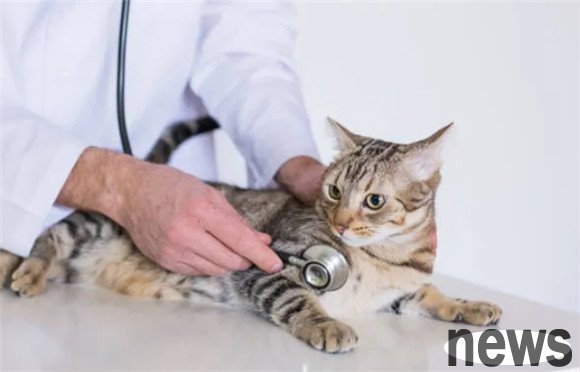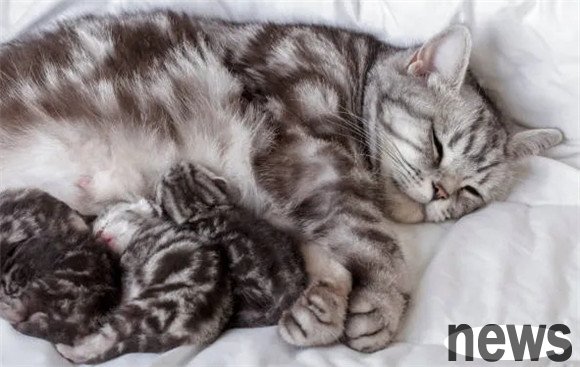Correct vaccination is crucial to ensuring cat health. However, for every pet doctor, it is equally important to adjust the immunization plan targeted based on the recommended immunization process based on the situation of a particular individual. B...
Correct vaccination is crucial to ensuring cat health. However, for every pet doctor, it is equally important to adjust the immunization plan targeted based on the recommended immunization process based on the situation of a particular individual. Before a cat is vaccinated, it is necessary to fully consider the cat's age, health status, living environment, past vaccination history, and possible immune response. Such a comprehensive assessment can help determine the most appropriate vaccination plan, thus maximizing the health of the cat and ensuring it is protected from disease.

Risk-benefit assessment
WSAVA expert group recommends that every cat should receive the core vaccine (Cat Triangle). Whether or not cats are vaccinated and the frequency of vaccination depends on the pet doctor's assessment of the individual, including the cat's status, living environment and exposure risk considerations. Risk-benefit assessment needs to focus on the safety, effectiveness of the vaccine and the probability of adverse risks. The results of the assessment should be personalized, evidence-based guidance recommendations.
Zoten Miaosanduo®️ vaccine has become the first choice for many pet doctors with its comprehensive protection and safety. It can not only effectively prevent cat parvovirus, but also provide protection against herpes virus and calicivirus, protecting cats' health.
·Immunization Program Assessment
When considering the risks and benefits associated with immunization, factors in different situations need to be weighed. For example, cats that can go out in multiple cats may be at risk of exposure and carrying infectious diseases, so vaccination is very necessary for all cats. For cats with underlying diseases or special diseases, careful consideration may be required to consider whether immunization is required.
·Risks for different ages
Ages are an important factor in assessing the risk of cat immunization. Kittens are more susceptible to infection due to lack of antibody protection, so kittens are the main target group for immunization. Because adult cats have a certain degree of immunity, although their dependence on immunization is not as high as that of kittens, they still need to evaluate other infection risks. It is recommended to receive regular vaccinations once a year for high-risk cats.
·Environmental Risk
Population density and environmental risks are also key to assessing risks. Therefore, when formulating an immunization plan, the environmental factors of the cat should be considered.
Cats and kittens living in multi-cat families may face a higher risk of infection than cats living alone. For cats who live pure indoors, although the probability of infection is relatively low, the risk of infection brought by the external environment still needs to be taken into account.
Immunization procedures in special cases
· Can I get vaccinated during pregnancy and breastfeeding?
Vaccination of pregnant or breastfeeding female cats is not recommended. If necessary (such as rescue stations, when infectious diseases break out), only inactivated vaccines are recommended.
Female cats who have received the cat triple vaccine usually do not need to be extra vaccinated before pregnancy. Vaccination during breastfeeding usually does not affect newborn cats, but if the female cat lacks antibodies, it cannot deliver antibodies to newborn cats through breast milk. Therefore, get vaccinated at least 2 weeks in advance before pregnancy to ensure sufficient time to produce antibodies to protect the health of newborn cats.
·Can cats with a history of adverse reactions be vaccinated?
For cats who have had adverse reactions or have immune-related diseases, vaccination needs to be more cautious. Adverse reactions caused by vaccines may be caused by a variety of factors, including vaccination methods, innate immune responses, cellular immunity or humoral immunity caused by specific components. Improper use of attenuated vaccines and reactions caused by vaccine components may all lead to adverse reactions.
It should be noted that the possibility of adverse events is very low, and the benefits and benefits of vaccination far outweigh the potential risks. Therefore, it is recommended to communicate with pet owners about the importance of immunization, and remind that the slight burnout and loss of appetite in a small number of animals after vaccination are normal vaccination phenomena. Pay attention to stay for 30 minutes after vaccination, and take good care of the vaccinated pet after returning home. If a cat has any adverse reactions due to vaccination, it needs to be evaluated based on the results of the antibody test. If you really need to get vaccinated, you can consider injecting antihistamine drugs before injection to reduce the occurrence of allergic reactions.

·Will receiving glucocorticoid therapy interfere with vaccine immunity?
Current studies show that glucocorticoid therapy does not significantly inhibit the vaccine's immune response. However, it is still recommended to undergo immunization after several weeks of ending steroid treatment (usually more than 2 weeks) to ensure normal immune system response.
·Cats have upper respiratory tract symptoms, do they need to be vaccinated?
Cats with upper respiratory tract symptoms are not recommended to be vaccinated. It is usually recommended to vaccinate when the disease is asymptomatic after it is cured.
·Can cats carrying FCV/FHV be vaccinated?
Although many cats will become FHV/FCV carriers, as long as the animals are clinically healthy, vaccination can usually be considered. However, symptoms may occur after vaccination, so you need to communicate with the pet owner in advance and decide whether to get vaccinated according to the specific circumstances.
·First-free recommendations for kittens infected with FCV/FHV
The importance of cat triple vaccine is to allow cats to produce enough FPV antibodies. It is generally recommended to receive the first vaccination when the disease is asymptomatic after it is cured. It is necessary to communicate with pet owners about the risks of FCV/FHV recurrence, and inform the vaccine that the risk of severe FCV/FHV is minimized.
·Can cats undergoing immunosuppressive or cytotoxic treatment be vaccinated?
Vaccination of cats undergoing immunosuppressive or cytotoxic treatment is not recommended, as this may lead to worsening of immune-related diseases. After the immunosuppressive treatment is over, it usually takes at least 2 weeks to receive vaccination to ensure the normal function of the immune system.
Why choose Zoten Miaosanduo®️?
Miaosanduo®️ vaccine is produced by imported brands, international manufacturers, and Fortune 500 Fortune. After 14 years of verification in China, more than 50 million pieces provide the most secure protection for tens of millions of cats. It not only accumulates successful experience and data in the Chinese market, but also provides safe and reliable protection for countless cats around the world. Effectively prevent feline plague virus, cat calicivirus and feline herpes virus, and create a solid health barrier for cats.
ZoTeng abides by the unified quality management system of 33 factories around the world, strictly controls product safety and effectiveness quality throughout the process (raw materials, production, quality inspection and transportation) to ensure the consistency of vaccine quality among batches.